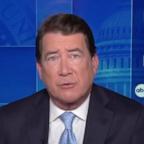
Why the 2016 Republican primary vote suggested Haley could win Vermont
As Monica just noted, about the only drama in the presidential primary contests tonight can be found in Vermont, where Haley actually might defeat Trump in a traditional, state-run primary (unlike the party-run primary she won in Washington, D.C., over the weekend).
So, what's going on in Vermont? Fundamentally, the Republican primary electorate just isn't as conservative in Vermont. I've been using the 2016 Republican nomination race as a back-of-the-napkin guide to the makeup of the GOP electorate this year, and it's been useful. At this point, we could split the GOP into two parts: those who voted for Trump, Ted Cruz and Ben Carson, who tend to make up the Trumpier part of the GOP now; and those who backed Marco Rubio and John Kasich, who aren't as inclined to back Trump. Looking at how the Super Tuesday states voted in 2016, you'll notice that Vermont is the only state voting today in which the combined vote share for Rubio and Kasich outdistanced the Trump, Cruz and Carson cohort.
Back in 2016, the types of voters who backed Rubio and Kasich tended to be more moderate and more likely to hold a four-year college degree. In that sense, they attracted parts of the GOP coalition (and beyond) that make up much of Haley's coalition this year. As we already discussed, some Democratic-leaning voters may have helped Haley in every contest, and Vermont happens to also be a very blue state full of those voters.
—Geoffrey Skelley, 538






